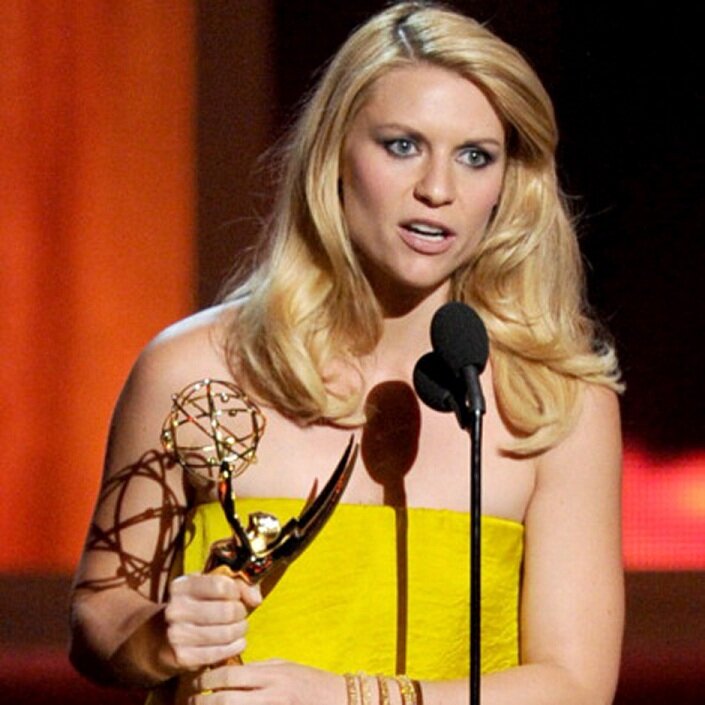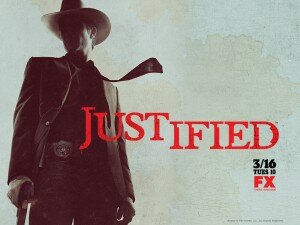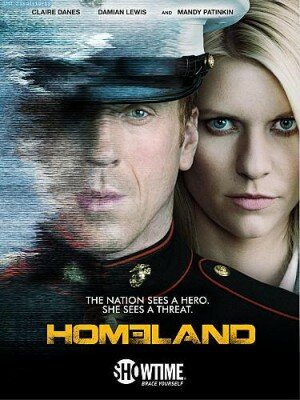
When this year’s Oscars are handed out on March 2nd, and Matthew McConaughey has deservedly picked up the Best Actor award, attention can finally shift to his actual best performance of the past 12 months: not on the big screen in Dallas Buyers Club, but rather on TV in the role of Detective Rust Cohle in HBO’s new “anthology” series True Detective, due to air on Sky Atlantic on February 22nd. In what is certain to be one of the biggest ratings and critical successes of the year, McConaughey stars alongside Woody Harrelson, playing Marty Hart – two homicide detectives investigating a murder with occult overtones in rural Louisiana.
Separate from the quality assured by the backing of broadcaster HBO, there are a number of striking elements that distinguish this series from the lumpy police procedurals that clog up TV schedules. First, there is a cohesion and coherence that stems from having one writer, Nic Pizzolatto, and one director, Cary Joji Fukunaga, responsible for, respectively, the story and its presentation. Secondly, there is the fact that the show is structured as protracted interrogations of the two detectives 17 years after the initial investigation, which we observe in lengthy flashbacks. As the mystery of the murder investigation is unspooled through recollection, there remains the present-tense mystery of what precisely is being pursued in the separate questioning of Hart and Cohle. The final distinguishing feature of the series, and perhaps the most impressive, is the outstanding quality of the performances.
On a roll with meaty parts in films such as Killer Joe and Mud, McConaughey tests himself even further by seizing the opportunity to play Rust Cohle, a brilliant, world-weary nihilist, whose own personal tragedy has liberated him from the niceties and self-censorship demanded by civil society. His Texan drawl savours every syllable as, between pursuing leads and examining clues, he reflects and expands on what he sees as the illusion of the self and his belief that human consciousness is “a tragic misstep in evolution.” In an exclamation that might have the Iona Institute taking legal advice, Rust impugns Christian faith, saying “If the only thing keeping a person decent is the expectation of divine reward, then, brother, that person is a piece of shit.” The fact that his philosophical ruminations are suffered with head-shaking disbelief by a very grounded and unreflective partner, who advises him to “keep this shit to” himself, makes for one of the most entertaining onscreen odd couples of recent years.

In the less flamboyant role of the amiable, philandering Hart, Harrelson is every bit as impressive as McConaughey. Just as McConaughey’s voice relishes every beat of the great and grandiose dialogue he has been gifted, so too Harrelson’s face registers every emotion that courses below his good-ole-boy demeanour. Harrelson will never achieve the prominence that McConaughey’s beauty has won for him, but, as actors, both men are cut from the same cloth. As McConaughey showed a long time ago with the derelict Wooderson in Dazed and Confused, and Harrelson similarly displayed in a delicious cameo in No Country for Old Men, both men are capable of taking the smallest of roles and making them a show-stopping delight. True Detective affords them all the time in the world to make the most of the strong material they’ve been given. It does not rush along a plot-driven course, allowing us to spend much more time in the entertaining company of the two men than would be accommodated by the rote three-act milk-run of most TV police procedurals.
Many critics will reach for “novelistic” – the adjective du jour in discussions of what is now often referred to as this “golden age of TV” – to account for the show’s less than frantic pacing and its other strengths, but that appeal to the respectability conferred by some other anointed art form is entirely unnecessary. While writer Nic Pizzolatto has published fiction and worked as a teacher of creative writing, he has himself acknowledged that shows such as “Deadwood, The Wire, and The Sopranos…were actually filling my hunger for fiction as an audience more than the contemporary fiction that I was reading.” Indeed, some of the best features of True Detective find their most obvious source in these trailblazing HBO series. The procedural elements on show have more of the authentic workaday feel of The Wire than the flashy tech of CSI or NCIS. Marty’s infidelity and the attack-as-defence attitude he strikes at home to fend off his wife’s suspicions evoke the recurring domestic tensions between Tony and Carmela Soprano. Any fan of Deadwood will approvingly cock and ear when Cohle quotes a St. Paul verse that was also used in that earlier show to challenge the idea of the individual’s separateness from society.
If there is a novel, or rather series of stories, that informs the show, it seems to me to be a rather surprising one. At present, two TV series relocate the character of Sherlock Holmes to the present day. In the BBC’s more celebrated Sherlock, Benedict Cumberbatch embodies the great detective almost as someone on the autistic spectrum somehow edging closer to “normality” with each season through the improving influence of his grounded and kindly Doctor Watson. In the U.S.-based Elementary, Jonny Lee Miller is Holmes the recovering addict, with a female Watson (Lucy Liu) originally employed as his sober companion. Both of these versions have their fans, but True Detective might be the most inspired resurrection of the spirit of Alfred Conan Doyle’s consulting detective. Cohle is as insightful, knowledgeable and unconventional as Holmes, while Marty is very much the surprised, disbelieving companion, unable, or unwilling, to see past the familiar surface of everyday life to achieve the insight and acuity of his possibly unhinged partner. McConaughey gives us Holmes as a wounded pessimist with no time for the illogical pieties of respectable civilisation, whose only stimulation comes from pursuing a mystery to its explication. Harrelson’s Marty is the impressed Doctor Watson rooted to the ground by his appetites and ego. Despite the similarity to Holmes, however, Cohle never seem so unearthly as Holmes, as bound by the dictates of fictional superheroism. As we cut between the investigation and the interviews 17 years later, his decline is apparent. This is a man with a fascinating, perhaps tragic story, but not an archetype impervious to fear.

Despite all of its wordy pleasures and ambling storytelling form, True Detective is far from directionless. The show simply has a far greater tolerance for variety than, say, that evinced by the CSI franchise. Its occult elements, deployed minimally, evoke the dread possibilities once summoned up by David Lynch’s Twin Peaks. On a similarly visceral level, it knows how to handle thrills and spills. In fact, the fourth episode climaxes with one of the most exciting action sequences ever staged for TV, as Cohle becomes caught up in a confrontation between a biker gang and a drug dealers in a six-minute, single continuous shot that is already the stuff of TV legend. It is one part Michael Mann and one part Grand Theft Auto, a tour de force of staging that makes most TV shoot-outs seem like the pat-a-cake choreography of the preschool Christmas play.
Pizzolatto promises that any further series, as suggested by the anthology label, will focus on new characters and tell a different setting. This storytelling model has the benefit of avoiding the slow rot that sets in when success demands that a show stretch on into seasons that exhaust its initial inspiration. This anthology formula is already being used to interesting effect in FX’s American Horror Story, each season of which tells a different story using the same actors as a kind of repertory company. At the end of the first season of True Detective, however, McConaughey and Harrelson will be released from their TV captivity back into the cinematic expanse. Only half way through this opening series, we can not only recline luxuriantly into one of the finest examples of recent TV drama, but also already begin to wonder which great actors might possibly recruited to tell a story as compelling and rewarding as this one.






